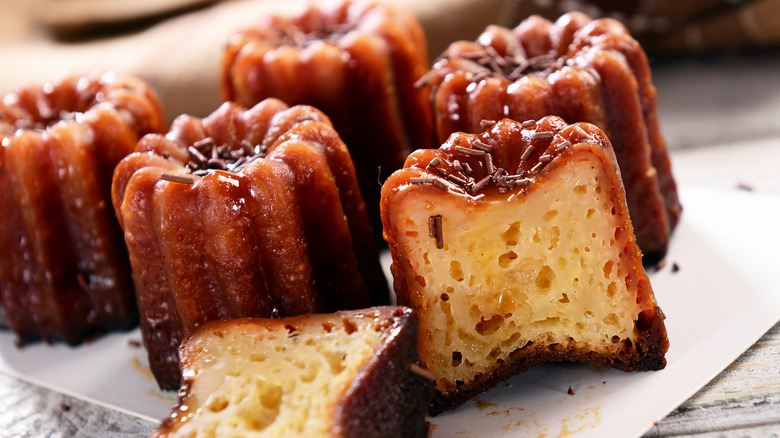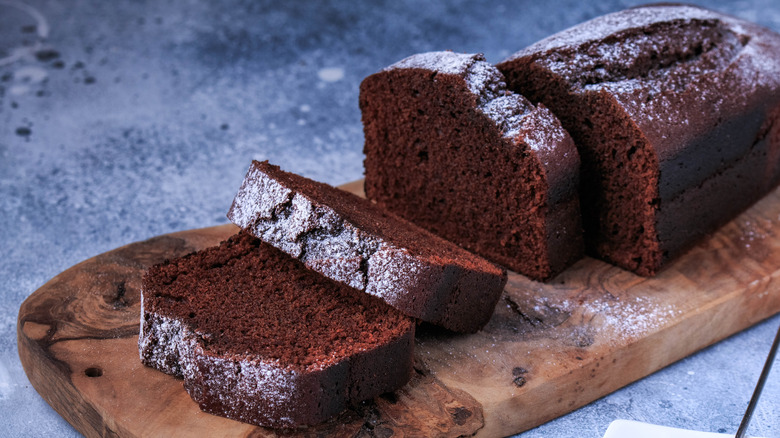Why French Cake Recipes Often Call For A Splash Of Booze
If there's any country that knows a thing or two about desserts, France has got to rank at the top of the list. From cool, creamy crème brûlée to dramatic chocolate soufflé to weeknight cherry clafoutis and so many more sweet treats, the French certainly seem to take their dessert production seriously. And while we might typically associate French sweets with complicated, laborious pastries such as flaky, laminated pain au chocolat or caramel-slicked tarte tatin (via National Museum of American History), this sucre-loving culture boasts plenty of quick and easy desserts in its repertoire, too.
Among them, according to food writer Aleksandra Crapanzano, is a whole category of simple, not-too-sweet cakes. In her book "Gateau: The Surprising Simplicity of French Cakes," Crapanzano explains, "The French are really, really practical, and they're very frugal" (via The Alcohol Professor). "If they're just making dinner at home on a weeknight, they always have dessert, and what they tend to do is work from a lot of really basic recipes," she says.
Though these cakes might be basic, they don't lack in flavor, and that's thanks — at least in part — to the frequency with which a hint of booze shows up in the recipes.
Flavorful liqueurs boost the complexity of French cakes
Given, as food writer Aleksandra Crapanzano writes in her book on French cakes, the fact that these surprisingly simple cakes often call for basic ingredients and are ready for the oven in just in a few minutes, it makes sense that highly flavorful liqueurs such as rum are often used to easily boost the desserts. As noted by The Alcohol Professor, a spoonful or two of deeply fragrant liqueurs such as prune Armagnac or apple Calvados are used to enhance and deepen the flavor of cakes, much in much the same way that Americans use vanilla extract, which just so happens to be made by soaking vanilla beans in water and ethol alcohol, per Healthline.
Of the 100 cakes featured in Crapanzano's book, the outlet writes, about half of them feature booze, with rum, for example, getting slipped into a ganache or a simple glaze spooned atop a basic yogurt cake, Crapanzano explains. The spirit selected will depend upon the other flavors in the cake, Crapanzano told The Alcohol Professor, explaining, "If you're making a raspberry cake, maybe you add a little bit of framboise, Calvados for an apple cake, or crème de pêche for a peach cake."
Liqueurs show up in more complex French desserts, as well: Rum in the little custard cakes known as canelés de Bordeaux (via Food.com), for example, and Grand Marnier in flambéed crêpes Suzette (via My Parisian Kitchen). But if a quick and easy sweet is what you're craving, you'll find plenty of opportunities to add booze to the mix.

